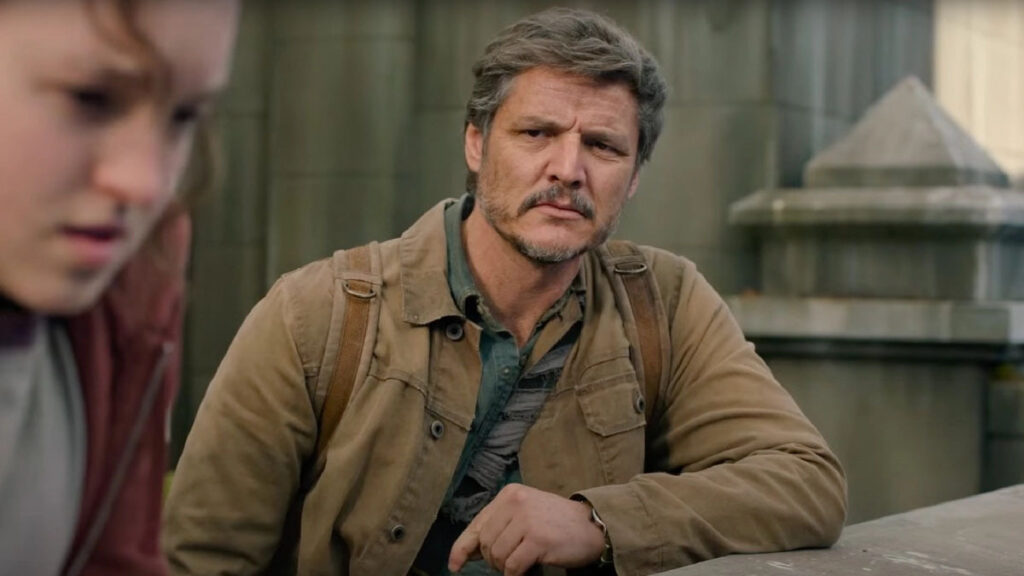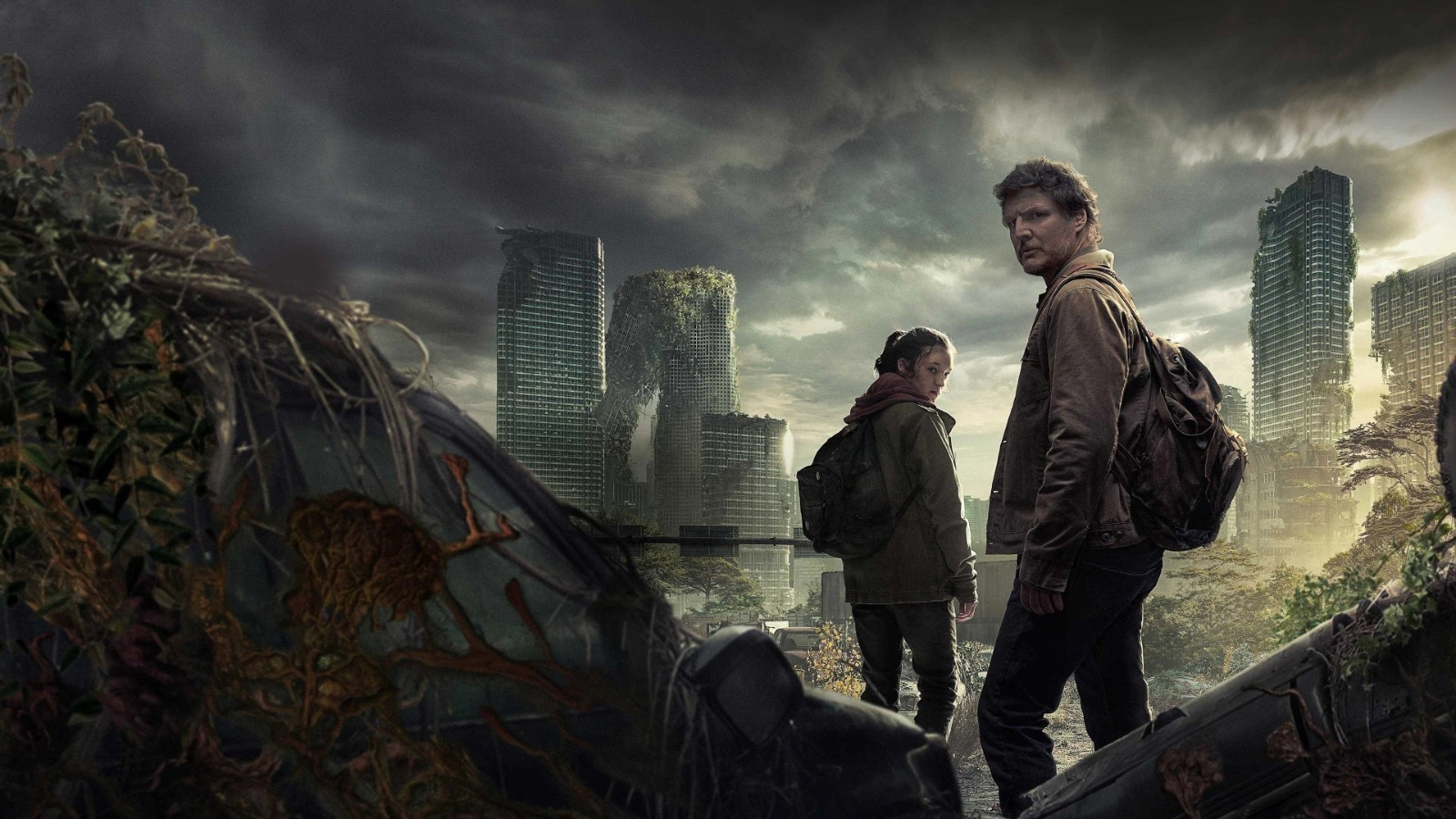Originally a hit video game released in 2013, the Last of Us adaptation has gone through many stages of development, almost becoming a Sam Raimi film starring Maisie Williams before turning into an HBO series. Despite starring high-profile actors and being created by Craig Mazin, who also co-created Chernobyl, this series could have easily faltered in execution, like many video game adaptations before it.
Thankfully, it manages to do what some of the best adaptations do very well: being not just faithful to the source material but also adding to it in a meaningful way.
It’s a great way for new fans, like yours truly, to discover the material. The outstanding lead performances and a perfectly executed vision of hope in a hostile environment make The Last of Us an exciting experience from the first scene to the finale.
Set in a post-apocalyptic world where a devastating fungal infection, known as the Cordyceps, has wiped out a significant portion of humanity, turning the infected into aggressive, zombie-like creatures. The story follows Joel, a hardened survivor haunted by the loss of his daughter during the early days of the outbreak. Tasked with escorting a young girl named Ellie across the country, Joel soon discovers that Ellie may hold the key to humanity’s salvation. Together, they travel through a desolate world, and slowly, Joel rediscovers the joys and despairs of parenthood.
The leads, Pedro Pascal as Joel and Bella Ramsey as Ellie, are the heart and soul of the series. Pascal delivers a nuanced performance, capturing Joel’s gruff exterior and inner vulnerability in a way that rings true. Without connecting to people on a deep emotional level, this type of show won’t work. This is something Pascal excels at as well as upcoming star Ramsey.
Bella Ramsey, as Ellie, is a revelation. She perfectly portrays the character’s resilience, intelligence, and fierce determination, while also capturing the vulnerability of a young girl forced to grow up in a brutal world. Ramsey’s ability to convey the spectrum of Ellie’s emotions—ranging from her sarcastic wit to her deep-seated anger and grief—results in a powerful and memorable performance.

The Last of Us’ first season wouldn’t nearly be as impactful without its supporting cast. These include Anna Torv as Tess, Gabriel Luna as Joel’s brother Tommy, and Lamar Johnson as the complex but compassionate Henry. Special mentions must be made for Nick Offerman and Murray Bartlett who are unforgettable as the gruff Bill and the upbeat Frank respectively, as well as Storm Reid as Riley. These characters receive flashback episodes where we get to know them, get attached to them, and then experience heartbreak with them.
Bill and Frank’s story, in particular, is brought to life with a tender touch in a standalone story that might be the most beautiful episode of television in years. Riley’s relationship with Ellie, and the excitement and nervousness of teenage curiosity are wholesomely captured in the seventh episode.
The Last of Us is visually stunning, with details like paint scabbing and fungal veins adding to the atmosphere. Its audio is also excellent, with distant cries, clicks, and a superb soundtrack that create tension in quiet scenes. The original score by Gustavo Santaolalla complements the action scenes well.
Like its zombie contemporary, The Walking Dead, The Last of Us also focuses more on the darkness of humanity as a mirror to its hope and compassion.
While the infected pose a constant threat in the background, it is the other humans that Joel and Ellie encounter throughout their journey who often present the greatest challenges and moral dilemmas. Perhaps Ellie is the only character in the show who’s not only good but selfless. By the series finale, we see that Joel is also deeply flawed, making a choice that might have doomed humanity to extinction.

The Last of Us series owes its success and faithfulness to the source material in large part to the collaboration between series creator Craig Mazin and the creator of the original video game, Neil Druckmann.
Together, they have shaped the show into an authentic, character-driven experience that captures the spirit of the game while also enriching its narrative for the big screen.
Craig Mazin brings his expertise in storytelling and character development to the project. His keen understanding of the narrative arc and the complexities of human emotions allows the show to delve deeper into the characters’ motivations and relationships, resulting in a powerful and emotionally resonant viewing experience.
Neil Druckmann, as the creative director and writer of the original game, plays a crucial role in ensuring the series remains true to its source material. His involvement in the project provides invaluable insights into the world and characters he created, guaranteeing the show stays faithful to the game’s vision while adapting it for television. Druckmann’s collaboration with Mazin ensures that the show’s narrative remains cohesive and consistent with the established lore and themes of the game.
The Last of Us tries to pack a lot into its first season’s nine episodes. The ending, for instance, feels short and almost rushed, although still very impactful. Like Joel, we end the season in a haze, and like Ellie, we are left uncertain of what lies ahead. (Well, if you played the second game, you probably know what’s ahead, but that’s a couple of years away).
The first season of The Last of Us isn’t perfect, but it reaches some phenomenal highs and delivers great emotional gut punches. Let’s hope the show is a good indicator for the quality of new video game adaptations going forward.







